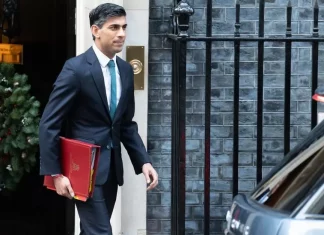I remember only too well when I was a budding City slicker, bright eyed and bushy tailed, a mop of blond hair, keen to please,looking forward expectantly to a long holiday weekend of a late Friday afternoon, sun streaming through the window, when the boss sails past the desk chucking down a file, ‘just run over those United Widget figures for Tuesday old son, bit of a flap on’. Oh so close, only minutes from freedom, you know in your heart this is a 24 hour job, the weekend’s trashed.
My American buddy and fellow Mises Institute member Professor Pat Barron played the same game on me a few weeks ago, he en route to France me to Wales , the message reads, Concert of Europe or Splendid Isolation, give me your view. Back go the holiday military histories to the shelf, off come the Margaret Macmillan and AJP Taylor. Fair enough it’s mostly revision, but,much of it from my days as President of the school History Society, (1964)! I was brought up with the influence of AJP as my history tutor was a protege of his at Oxford. My father, a high Tory, thought him too left wing as I did myself as a young man, I have subsequently changed my mind on his interpretation of history, although not his economics.
To remind readers, the Concert of Europe was a highly complicated system of treaties post Congress of Vienna with a mission to to return Europe to a pre Napoleonic status quo, the result of some delicious machinations by Metternich, Castlereagh, Talleyrand and assorted politicians and royalty from across Europe . There are, I believe still some complex parlour board games today reflecting those heady days of international diplomacy conducted by experts who combined the devious with the honourable. The professor sought to draw a similarity between what might be two options today, in or out? Although this never really was the choice 200 years ago nor is it today. Great Britain was not splendidly isolated, nor was it really an enthusiastic supporter of the Concert of Europe, although the concert was not without its legal obligations.
The Great Britain of yesteryear had a different strategic perspective than today, as indeed did the old great European powers. Britain was broadly a free trading maritime power, uppermost in the geo-political mind were protection of its trade routes and access to India and a long term possibly misjudged policy of maintaining the European balance of power. Any comment on this historically has to be a subjective view. Then as now fundamental sovereign geo political goals are different. Splendid isolation is seldom an ultimate solution but trade and good neighbourliness is. I think it is worth quoting here here the Earl of Derby’s ( foreign secretary 1866) mantra in full.
‘ it is the duty of the government of the UK placed as it is with regard to its geographical position to keep itself upon terms of goodwill with all surrounding nations but not to entangle itself with any single or monopolising alliance with any one of them, above all to endeavour not to interfere needlessly or vexatiously with the internal affairs of any foreign country,’
It would be difficult not to see the advantage of this dogma given European developments from 1866 to 1918. We find ourselves in the peculiar situation today where neither splendid isolation or a Concert of Europe are on the table. Highly centralised European government, a common currency, a prescriptive Napoleonic Code of law across 27 nations with widely differing economies, languages and customs is actually absurd and would certainly be regarded as such by our European forbears. Indeed so unworkable has it become an imminent collapse of the system is inevitable. Welfarism, both corporate and social, an electoral system which ensures debt, degradation of the currency presents an inescapable trap. The scene is not today a build up of massive continental armies, or a race to build dreadnoughts, but a crisis of banking and fiat currencies and equally dangerous. Europe faces an economic crisis not restricted to one country but the world, as the currency race to the bottom engineered by politicians and their central bankers steeped in Keynesian dogma.
The free press is the first line of defence against the threat to constitutional democracy , yet the western industrial democracies have both dumbed down press and inadequate state education systems. Money, constitutional rights and law are alien subjects to both readers and writers of newspapers. Television is worse, a world of sound bites incapable of encouraging in depth debate, yet there can be no short cut to constitutional reform. Should this be in doubt take a trip to the library and read a 50 year old copy of The Times and see just how low standards have become.
The forthcoming referendum on membership of the EU will show just how impossible serious debate has become in the modern world, politicians,press,media personalities have not had the benefit of a traditional education the whole concept will be still born.
Instead await scaremongering, vested interests, abuse of the honours system and a final subtle but real degradation of public sector broadcasting.






